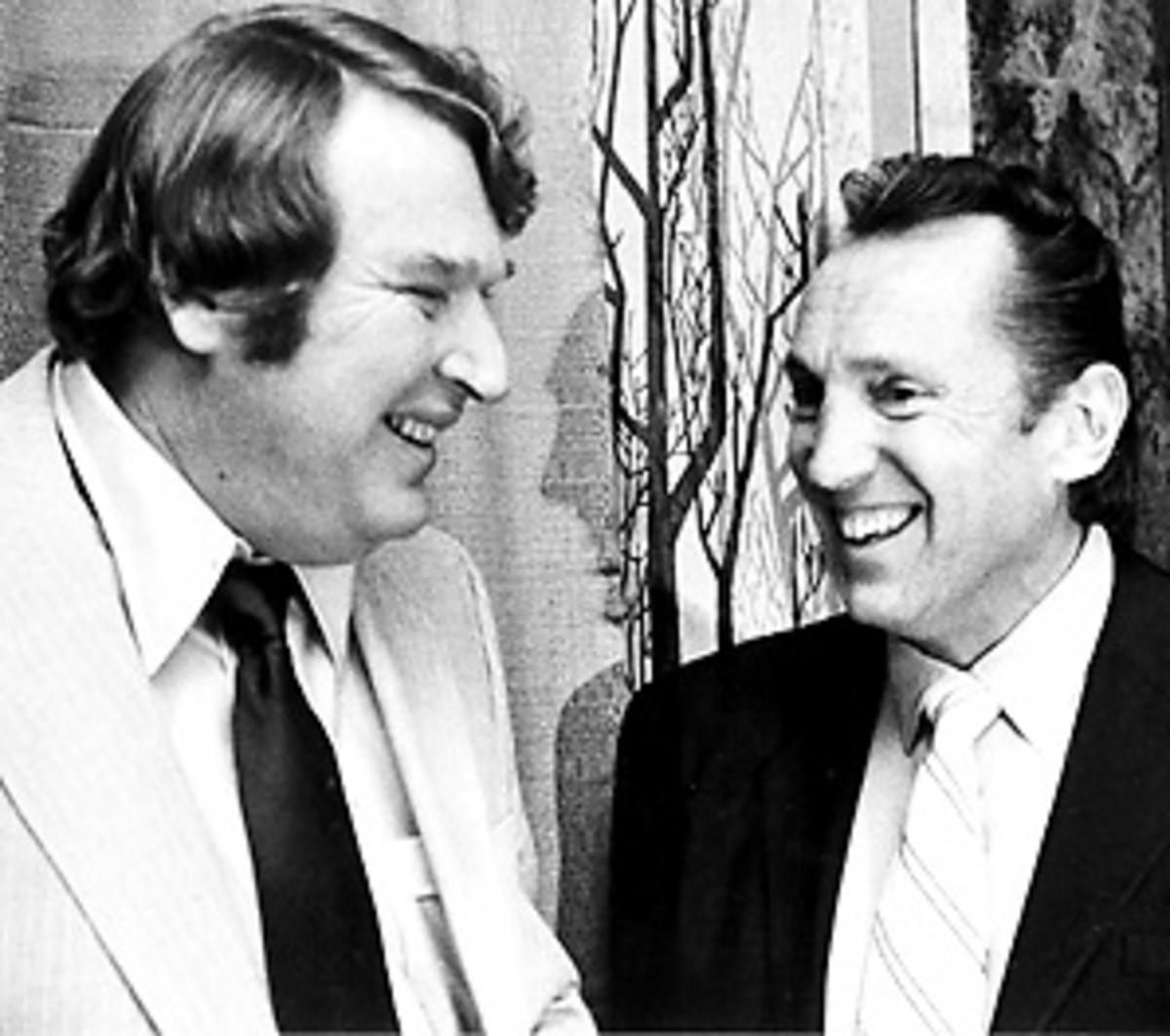Davis impacted football history, and did it on his own terms
On a Friday night in April 2004, the night before the NFL Draft, Davis was giving me a tour of his offices at the Raiders' facility in Oakland. In his inner sanctum, there were four large TVs on the wall, in a diamond configuration. He said he watched games in his office quite often. "Basketball, women's basketball, baseball,'' he said. "All the sports.''
"Women's basketball?'' I said, surprised. And I decided to test him: "OK, what team took Diana Taurasi with the first pick of the WNBA Draft?''
Disdainfully, he said: "Oh, come on. That's easy. Phoenix.''
Al Davis wanted you to know he paid attention to everything in the world and knew something about everything -- and knew much more than you knew about football.
***
When I heard the news about Al Davis' death Saturday morning, the first thing I thought was, Has there ever been anyone like him? In pro football history, I mean. I honestly can't think of one. George Halas and Paul Brown are close; they founded and owned and coached and scouted, and Halas played for 10 years. But the number of jobs Davis did in football is staggering: scout, assistant coach, head coach, general manager, commissioner, team owner, team CEO. And professional contrarian. He did many of those at the same time.
The shame of being young today is all you've seen is Davis' Raiders flounder. In the last nine seasons, Oakland has been a bad team and adrift as a franchise, and he'd been unable to bring in a smart man to help him run the front office day-to-day. But look at the first 42 years of Davis' professional career, and it's clear he belongs on the Mount Rushmore of football history.
In a 51-year pro football career, Davis scouted for the Chargers and Raiders, was an assistant coach for the Chargers, was head coach and general manager for the Raiders, served as American Football League commissioner in 1966, was one of the key burrs in the NFL's saddle that forced the 1970 merger of the two professional leagues, and presided over the Raiders' AFL Championship in 1967 and was part-owner and GM -- either in title or de facto -- ever since. No single person played more of a role in 63-year-old Pete Rozelle resigning in 1989; Rozelle was sick of fighting Davis in court over the movement of his franchise. For that reason, Davis was despised by many of the old-line owners in the league.
In the bitter AFL-NFL signing war, Davis fired one of the very first shots as a Charger assistant, signing wide receiver Lance Alworth; he became the first AFL player elected to the Pro Football Hall of Fame. His Raiders and the Steelers were the first teams to mine historically black colleges for talent. He hired the first black head coach in NFL history (Art Shell), the first Hispanic head coach in NFL history (Tom Flores) and he made Amy Trask the first female chief executive in NFL history, a job she still holds. He loved giving young people chances. The chance he took with John Madden, hired at age 32 to coach the Raiders in 1969, paid off. Madden coached 10 years, and he retired with the best winning percentage in history for coaches who won at least 100 games.
Davis' Raiders won the AFL title in 1967 and NFL titles in 1976, 1980 and 1984. They lost a Super Bowl in 2002. The franchise is one of two to have appeared in Super Bowls in four different decades.
Of the people I've met covering sports in the last 31 years, Davis was the most interesting personality. Easily. He challenged me a couple of times over things I'd written -- one time months later deep in a story that even I didn't remember. Time after time, on issue after issue, Davis would abstain from voting at league meetings, often times his way of voicing his silent protest over a bylaw he considered short-sighted. And sometimes I'm convinced he did it just to be a contrarian, just to say, "I never want to be in lockstep with the NFL -- or with anyone. I'm my own man.''
Davis loved to take the new owners in the league and spend time with them one-on-one, to talk about how they could work in common and to tell them how he viewed the present and future of the sport. One of those men was Jerry Jones, who became close to Davis over the years. It was that relationship, in part, that helped embolden Jones to go outside the league's exclusive advertising deal with Coke to make a deal with Pepsi in the Dallas area. The league sued Jones, but eventually adopted Jones' contrarian way of selling and marketing beer and soft drinks both nationally and locally in separate deals. Jones, through Davis, saw the league was a collective entity, but also saw that each owner should be allowed to pursue deals in his own best interests.
Once, columnist Dave Anderson of the New York Times described Davis, raised in Brooklyn, as "cunning." When Davis saw Anderson he said, "Come on Dave -- don't call me 'cunning' in the New York Times.''
"But you are, Al,'' Anderson said.
"I know,'' Davis said. "But my mother reads the New York Times.''
So did Davis. He read everything. Talk to him for 10 minutes and you realize he was a lot more than a football man. Don't let the last nine years color everything you think about Davis. Davis, in his prime, was a holy terror for those he competed with.





